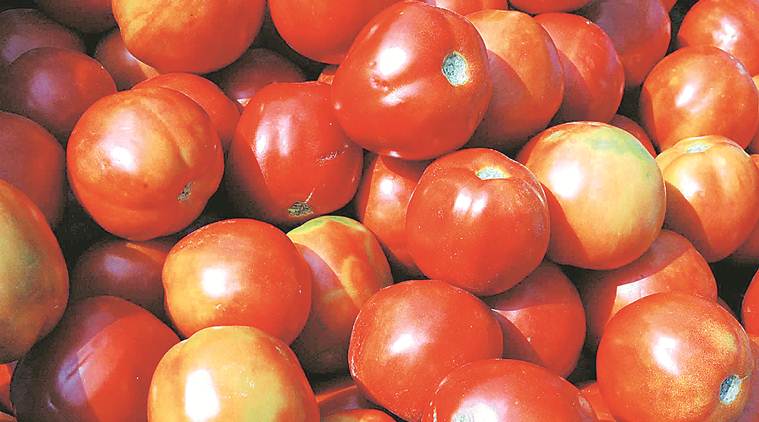
The wholesale and retail prices of tomatoes have doubled across the state in the last 30 days, in a development which sellers attribute to a decline in the supply of the vegetable from major producing zones.
Traders also felt this trend of price rise was likely to continue for the next few months.
In the wholesale market of Junnar, the average traded price of tomatoes is currently Rs 20-25 per kg. Last month, it was priced at Rs 10-15 per kg. Deepak Bhise, president of the Junnar taluka tomato growers’ association, said the price rise was mainly due to a dip in supply of the vegetable. There has also been a similar rise in price at retail markets. Vishnu Salve, president of the Pimpri market, stated that the vegetable was trading at Rs 40 per kg.
“Last month, tomatoes were sold at Rs 20 per kg,” he said, adding the vegetable has seen the highest price escalation in the last month.
A key reason for this rise in price is due to the dip in the total area for growing tomatoes. Against the targeted area of 44,000 hectares, Maharashtra had reported just 31,423.46 hectares for the year. The dip is more prominent in the case of the rabi tomato, which is grown mostly in Junnar taluka of Pune and some parts of Marathwada. Almost all tomato-growing areas in the state have reported a dip in acreage due to water scarcity. Also, the alarmingly low levels in dams have almost made it impossible to water the standing crop, leading to the price pressure. At Pimpri’s market, Salve said the market is now getting only 18-20 tonnes of tomato per day, as opposed to the norm of 40 tonnes daily.
Bhise and other growers are awaiting the new crop of tomatoes — farmers in Nashik mostly grow the kharif crop which hits the market post August. The crop normally requires around Rs 1-1.5 lakh per acre as an investment in seed and other inputs. Growers normally sell their produce at an average price of Rs 10-15 per kg to book profit.
However, last year, most growers including the ones from Junnar were compelled to sell their crop at Rs 5-6 per kg, resulting in losses for them. Most had blamed the stoppage of road trade via the Punjab border to Pakistan for the low prices.